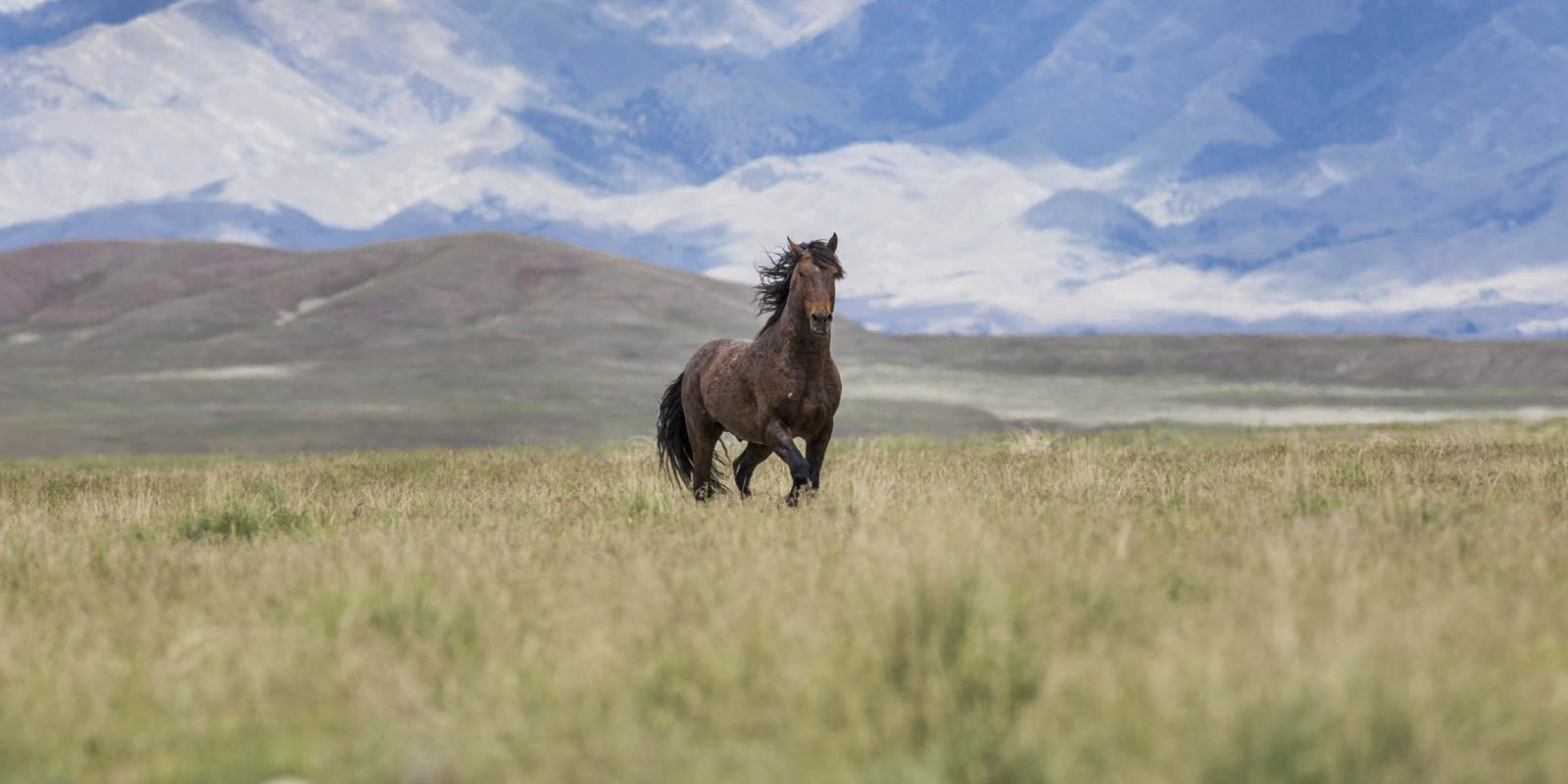Roundups
New data shows mass roundups/removals are a failed method of wild horse management
WASHINGTON (April 13, 2022) —Yesterday, the Bureau of Land Management (BLM) released its 2022 wild horse and burro statistics showing a population of 82,384 animals – a decline of less than 4,000 despite the roundup and removal of over 13,000 of the federally protected animals from the wild last year.
AWHC Calls for Moratorium on WY Roundups Amidst Death & Disease Outbreak at Holding Facility
WYOMING (April 1, 2022) —The Bureau of Land Management’s Wheatland Off-Range Corral (WORC) in Wyoming has canceled its April 1 adoption event due to an outbreak of Streptococcus equi, commonly known as “strangles.” A previous adoption event scheduled
AWHC's New Deputy Director Takes in Bonded Onaqui Mustangs
Hi there,
My name is Melissa and I just joined AWHC as their new Deputy Director. I’m reaching out today to share my story about why I’m all in on the fight to protect America’s wild horses and burros.
I’ve always been a photographer at heart. As a passionate advocate for animal protection, I’ve been behind the lens — as the owner of RJStein Photography — to bring awareness to the plight of wild mustangs.
Polling: 3 Out of 4 Americans Oppose Inhumane Helicopter Roundups of Wild Horses
Bipartisan Opposition Mounts to Bureau of Land Management’s Plan to Roundup 19,000 of America’s Iconic Animals This Year
WASHINGTON, DC (March 3, 2022) – New polling released today by the American Wild Horse Campaign (AWHC) finds 74 percent of American voters, regardless of political affiliation, oppose helicopter roundups of wild horses and burros, a common yet outdated, inhumane, and taxpayer-funded population management tool used by the Bureau of Land Management (BLM).
Records show nearly 50 additional wild horses died in gov’t care following federal roundup
Animals died after suffering broken limbs and infections and dozens more were euthanized for non-life threatening conditions at taxpayer funded facilities
WASHINGTON (Feb 16, 2022) — Nearly 50 federally-protected wild horses died in the aftermath of a recent government roundup in Wyoming, records show.
Roundup Report: The 2022 Sulphur Wild Horse Roundup
The Sulphur Herd Management Area (HMA) encompasses approximately 265,675 acres, in Utah. The Bureau of Land Management (BLM) currently estimates that approximately 600 wild horses call the HMA home. However, the BLM’s unscientifically low Appropriate Management Level (AML) for the HMA – the number of horses the agency claims that the range can sustainably support in conjunction with other animals and resource uses – is 165 to 250 horses.
American Wild Horse Campaign applauds Representatives Steve Cohen for opposing cruel and costly wild horse roundups
American Wild Horse Campaign applauds Representatives Steve Cohen for opposing cruel and costly wild horse roundups
WASHINGTON (February 8, 2022) — Today, Congressman Steve Cohen (D-TN) called on U.S. Bureau of Land Management Director Tracy Stone-Manning and Interior Secretary Deb Haaland to suspend the rounding up of federally protected wild horses and burros from western public lands.
NGO Urges CO Lawmakers to Stop Federal Wild Horse Removal
BLM Announces the Next Colorado Wild Horse Helicopter Roundup
American Wild Horse Campaign Urges the BLM to Cancel the Roundup Due to Inhumane Practices
Calls On Colorado Governor Jared Polis for Support
Roundup Report: The Wild Horses of The Pancake Complex
The Pancake Complex includes the Sand Springs West and Pancake Herd Management Areas (HMAs), Jakes Wash Herd Area (Herd Area), and Monte Cristo Wild Horse Territory (WHT) [a WHT is administered by the U.S. Forest Service] and spans over 1 million acres in Nevada.
Report: U.S. public paying hundreds of millions to fund wild horse roundups
Private livestock industry makes huge profits rounding up and removing protected horses from the range, analysis shows
WASHINGTON (Jan 25, 2022) — Rounding up wild horses on federal lands is big money for private livestock operators and costly to U.S. taxpayers, a new analysis by the American Wild Horse Campaign (AWHC) shows.


